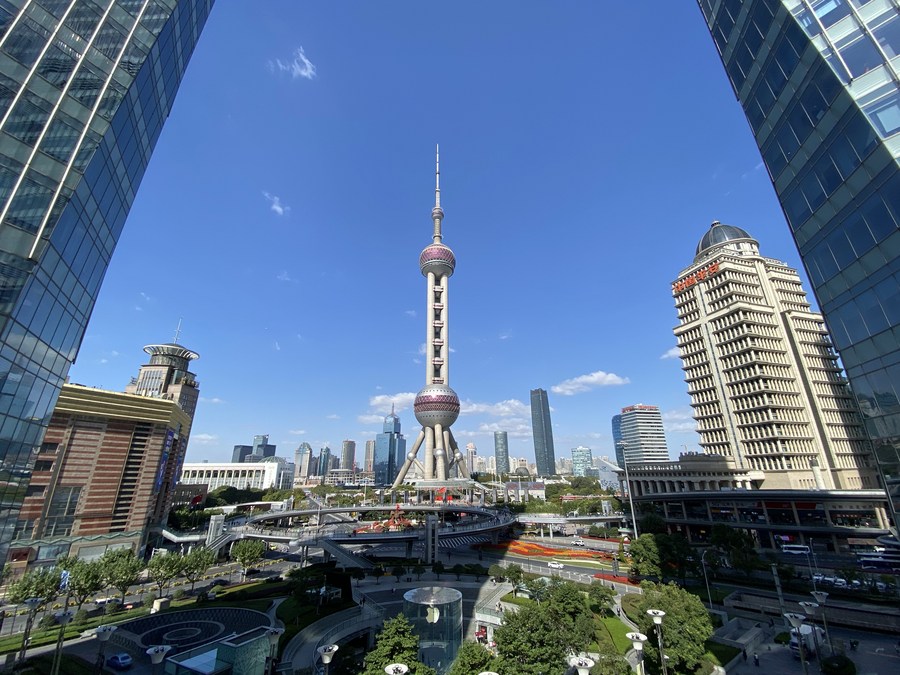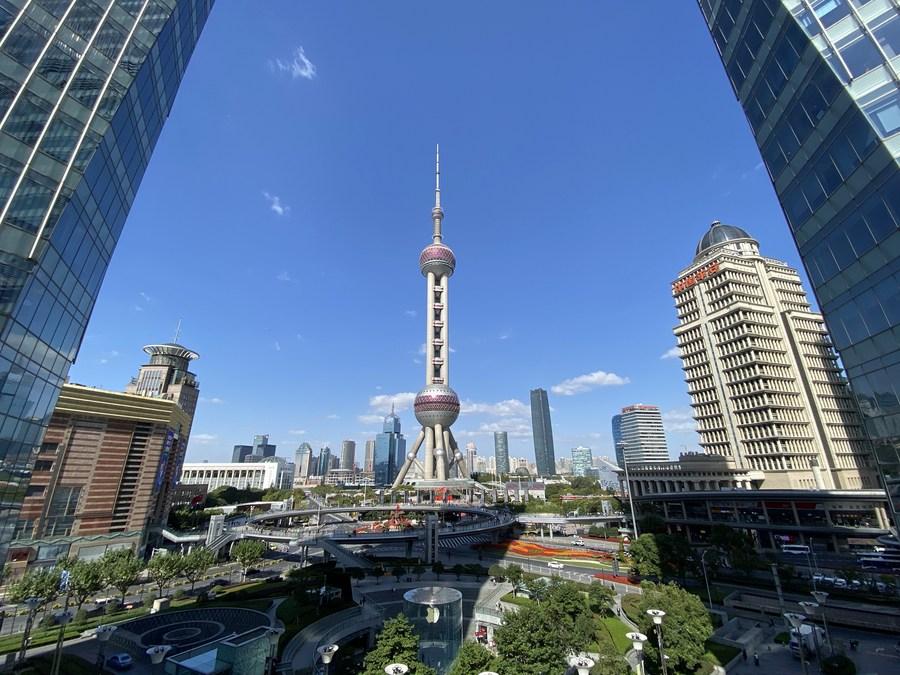
Photo taken on Nov. 3, 2020 shows the view of the Lujiazui area of Pudong, east China's Shanghai. (Xinhua/Ding Ting)
BEIJING, May 26 (Xinhua) -- East China's Shanghai Municipality recently issued a document on promoting the high-quality development of the biomedical industry, proposing to realize an output value of 180 billion yuan in the biomedical manufacturing sector within three years, reported China Securities Journal Wednesday.
The total output value of the city's biomedical industry exceeded 140 billion yuan in 2020, according to the local government.
The document, to be implemented on June 1, 2021, focuses on supporting the development of innovative drugs, high-end medical devices, advanced biomedical equipment and materials, and new service outsourcing.
Biomedical industry is a key industry in Shanghai where a number of major technological achievements and products have emerged, including the world's first cloned monkey model for rhythm disorder disease, the first domestically-produced programmed cell death protein-1 (PD-1) monoclonal antibody drug, the world's first panoramic dynamic 2-meter PET-CT, etc., said Hua Yuan, director of the Shanghai Municipal Development & Reform Commission.
The city has set up six national and 17 municipal clinical medical research centers, and the Yangtze River Delta evaluation and inspection branches of drugs and medical device technology of the National Medical Products Administration were also established here, creating a sound environment for the agglomeration of innovation resources and the development of related enterprises, Hua added.
According to the local government, so far, Shanghai has issued 25 class-B drug production licenses to research-type holders under the marketing authorization holder (MAH) system. Such holders often have no production sites of their own. The MAH system was introduced by the State Council in a three-year pilot reform in late 2015 and aimed at expanding those eligible to acquire drug manufacturing licenses, from pharmaceutical companies to drug researchers and institutions.
Besides, from January to April this year, Shanghai issued 136 class II medical device registration licenses, an increase of about 43 percent year on year, and the review and approval pace rose by 17 percent year on year.
Shanghai will strive to reduce the duration of technical review for first registration, change of permitted items and extension of registration of the class II medical devices by 50 percent on average compared with the legal duration within the year, and cut the registration period for such devices from an average of ten months to six to seven months by the end of 2022, said Zhang Qing, deputy head of the Shanghai Municipal Drug Administration.
Zhang also noted that since late April, the above-mentioned two Yangtze River Delta branches have been carrying out consulting, training and other business work, providing enterprises with "zero distance" services, and exploring ways to save time for related evaluation and approval.
(Edited by Gu Shanshan with Xinhua Silk Road, gushanshan.1987@163.com)




 A single purchase
A single purchase









